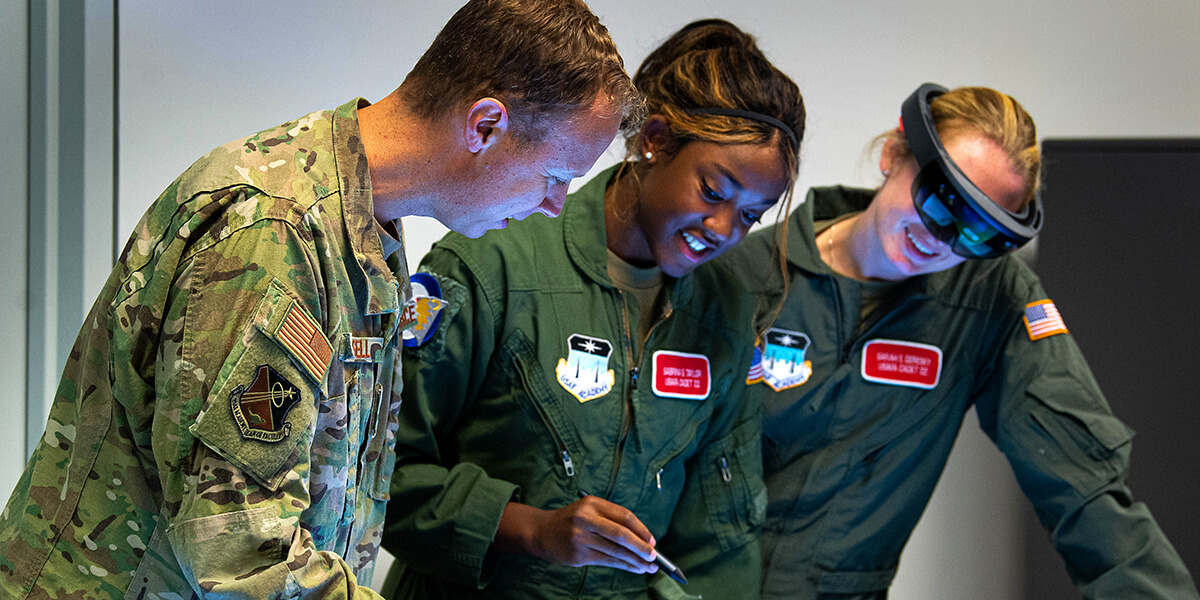An Elevated Education
“Man’s flight through life is sustained by the power of his knowledge.”
Austin “Dusty” Miller
At the U.S. Air Force Academy, we know tomorrow is unknown. The 21st century is being shaped by rapidly changing technology, the shrinking of natural resources, and the next large leap into outer space. So we don’t sit back and learn, we lean forward and pursue. We ask the tough questions, and do the hard work. Want to launch a satellite? Tackle global pollution? Harness the power of artificial intelligence? Tomorrow starts here.
The future challenges of air, space, and cyberspace demand agile thinkers, creative problem-solvers, and confident decision makers. A robust core curriculum will give you a breadth of knowledge in science, engineering, technology, and math, complemented by the arts and humanities. Deepen your expertise with 27 majors and 19 minors options. Solve real-world problems alongside exceptional faculty members in one of 24 research centers, like our Performance Science Center or Aeronautics Lab. Jump out of airplanes, learn a language, see the world, all before you even begin a career in the U.S. Air Force or U.S. Space Force.
